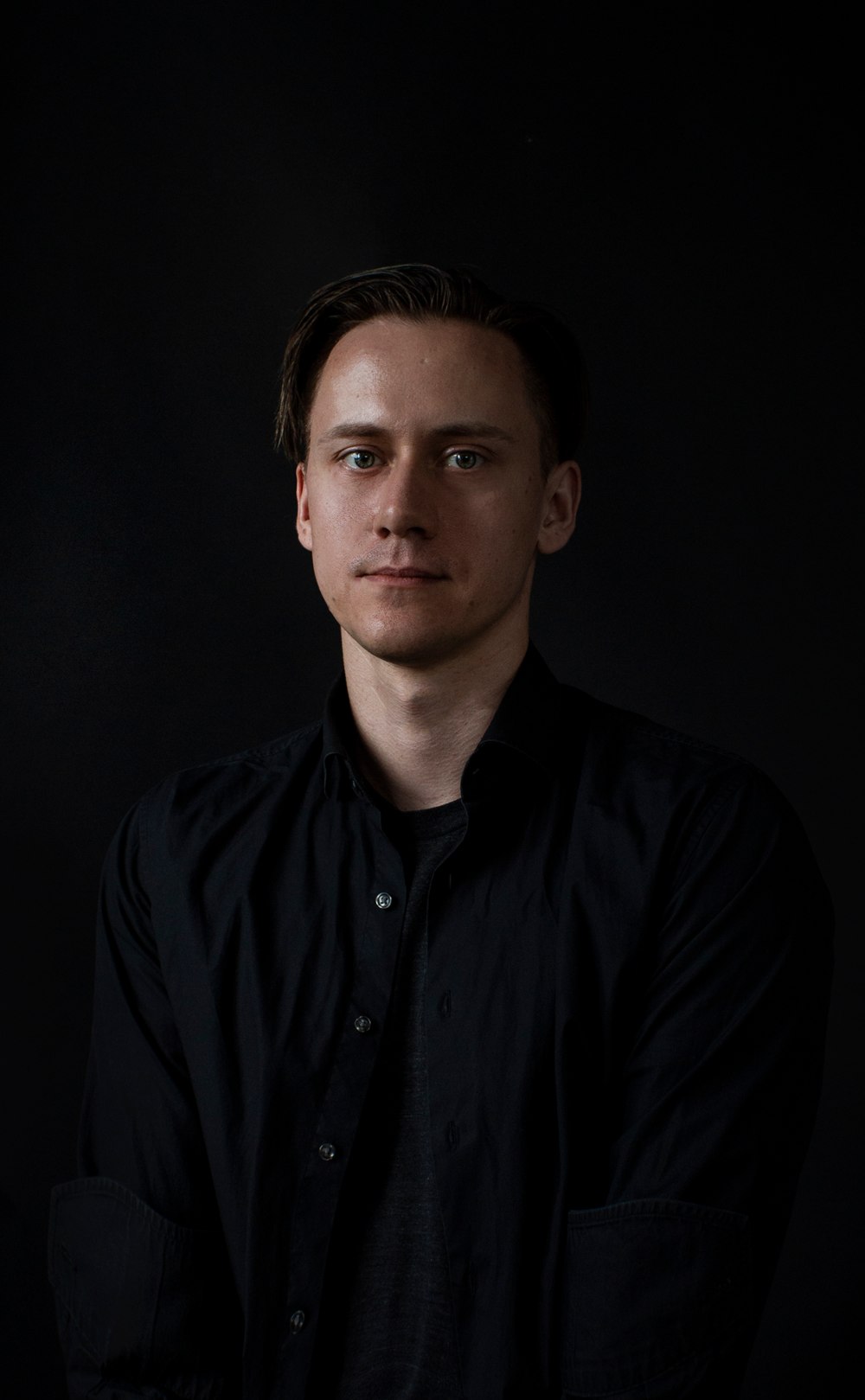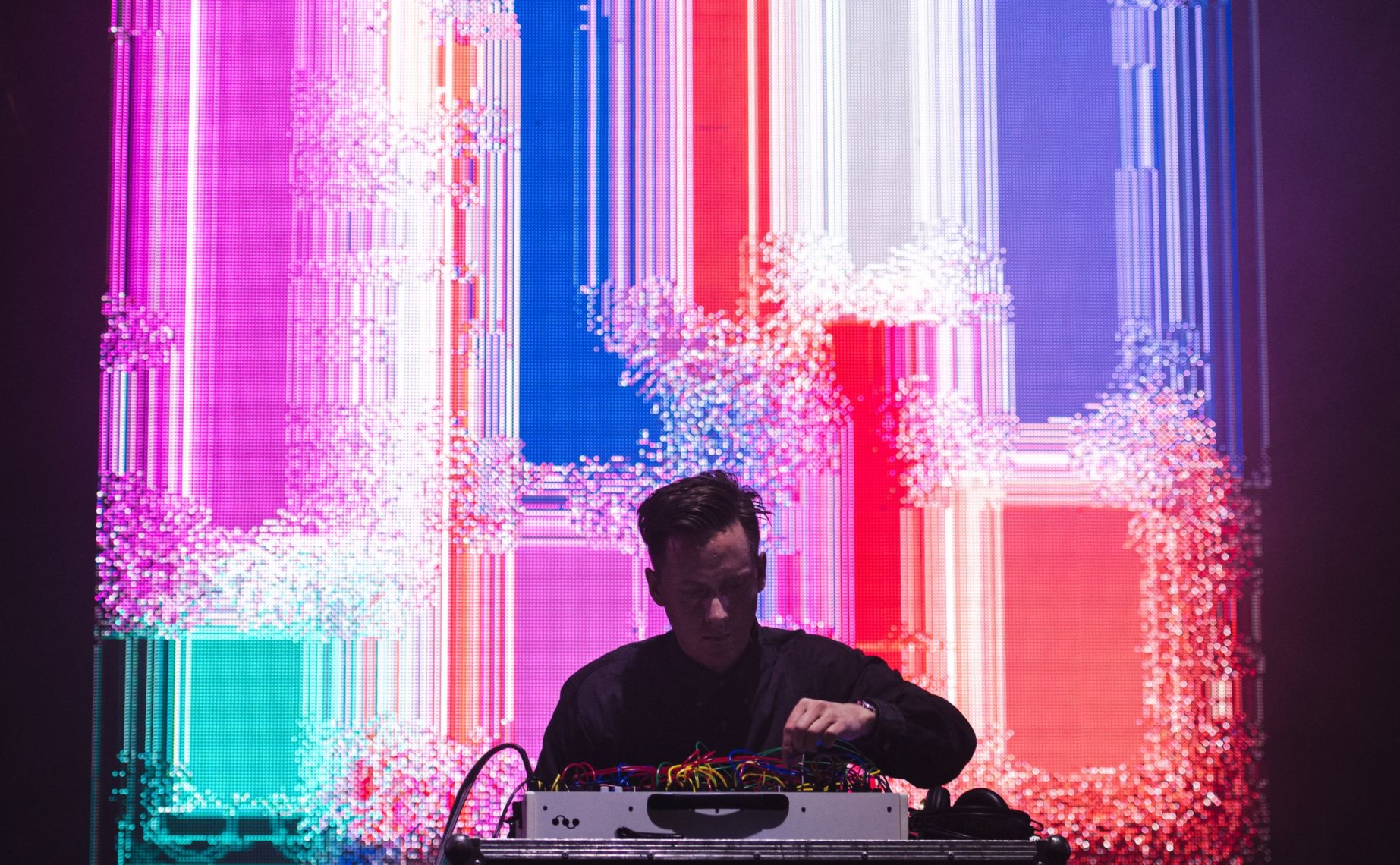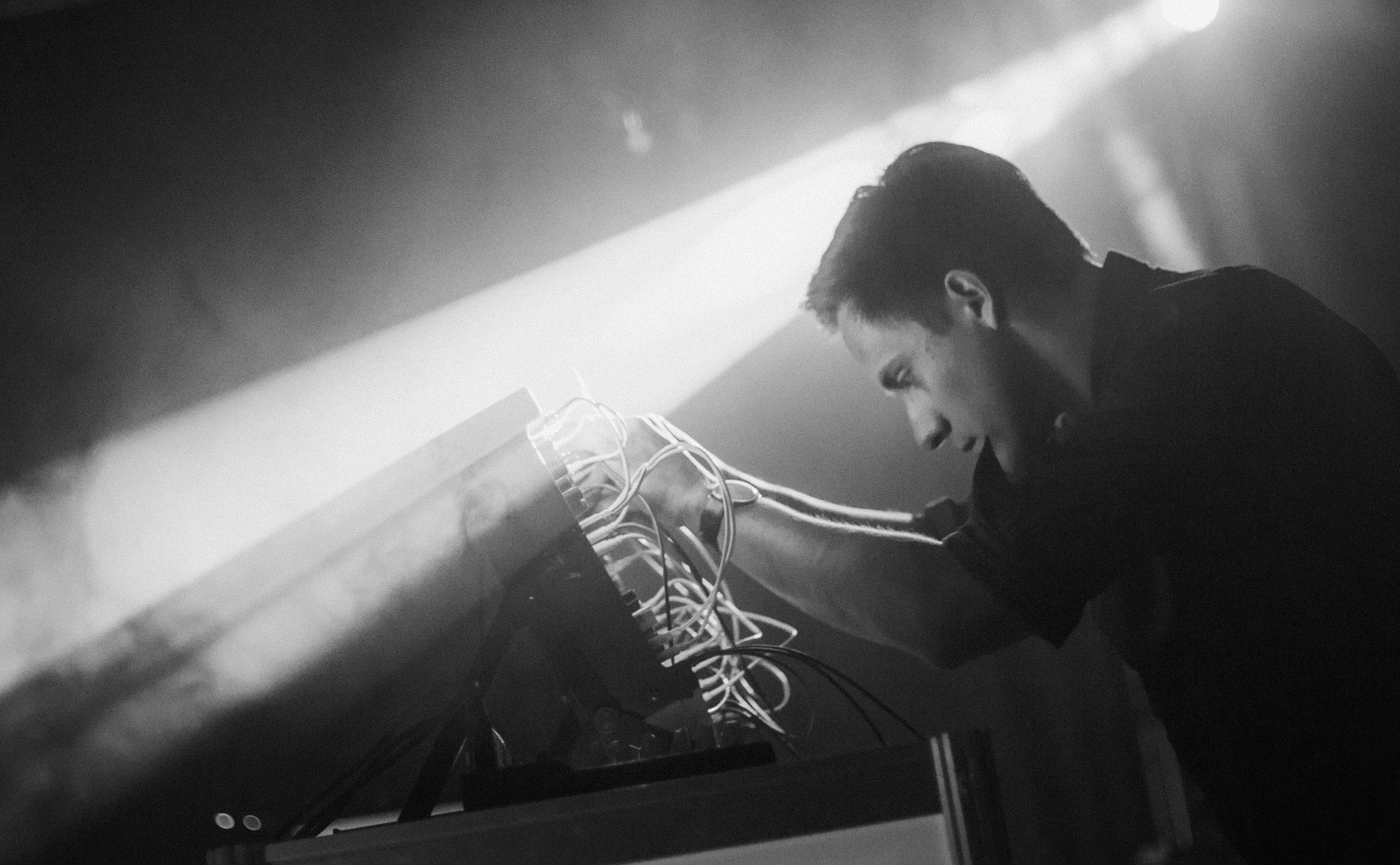
■ Features
Paul Hanford speaks with Ukrainian composer and sound artist Heinali about streaming live from a bomb shelter.

The sound begins as a drone. Speakers are placed upwards on wooden school chairs, the walls and low slanted ceiling around him are crumbling. Oleh Shpudeiko, whose artist name is Heinali sits in front of his modular synthesizer, the one that he spent five years building from pieces of kit and the one that came with him, in the back of a borrowed car as he drove both his girlfriend and mother to safety across the Hungarian border not much more than a month earlier.
This is how the stream Heinali made live and now preserved on YouTube on April 2nd 2022 began. A stream that simultaneously sounds both ancient and as contemporary as an experimentally leaning Boiler Room set. Ancient in the way that Oleh’s deep fascination for late medieval and early renaissance music seeps through in intricate melodies like it did on his 2020 debut LP Madrigals. Yet on the other hand, Oleh as a Kyiv-based artist making electronic music, is from and part of a city that up until the moment Russia invaded had been thriving in independence and creativity as one of the world’s most forward thinking underground music landscapes.
The performance was originally set to happen at the Lviv music school - Vedel School, as part of Live From Ukraine, a series of live-streamed concerts featuring Ukrainian musicians performing works by both Ukrainian and foreign composers. Yet “at a certain point,” Oleh explains, it became clear that they would not be able to stream from the school:
“After we had to cancel or postpone several of our streams due to air raid alarms, we realised that our best option was to move the whole thing to the nearest bomb shelter. And the nearest one happened to be just 100 meters from the school.”
He describes relocating into the shelter and connecting up two long ethernet cables, using a plastic bag to shield from rain where they were joined.
The idea of making art during war might reasonably for some not seem a priority, yet for Oleh, he explains:
“I think that a country exists for as long as its culture exists. You remove its culture and all that is left is territory.”
As each day we in the west become more distracted away from the horrors of the Russian invasion, the project Live From Ukraine’s mission to encourage an international audience's support of the Ukrainian army and humanitarian initiatives becomes more fundamental.
“To me, the cultural front is as important as the military one.”
Oleh writes to me on Easter Saturday via email from his home studio in the Kyiv suburb of Shuliavkawhich, to which he just returned. Like streaming live from a bomb shelter during a time of destruction, there’s this sense I get from his correspondence that life just simply has to go on:
“People are getting back en masse, and businesses are gradually opening. I was able to see friends and colleagues in a cafe just a few days ago.
On the other hand, the city is still not safe, there are renewed airstrikes and some people think Russians might attempt to take the city again soon.
I try to work as much as possible and recover at least some parts of my pre-war routine. It helps with the focus, keeping my mind stable.”
In the days leading up to February 24th, Oleh felt almost certain, despite the tension in the air, there would be no Russian invasion.
“Me and my girlfriend made both short and long term plans.”
He had lectures, live shows and projects planned for the whole year.
“I owe a lot to my girlfriend who insisted we devise an emergency plan in case it happens. On the night of February 23rd, we drank wine and watched the latest Curb Your Enthusiasm season. We were woken up by the explosions three hours later.”
Oleh’s first priority was to get both his girlfriend and mother to safety:
“Neither I nor my girlfriend drive or own a car. We were very lucky to find a car and a driver just a couple of hours before curfew.
At first, we aimed for the Polish border since I have friends in Poland who could help. The road should've taken us eight to ten hours, but due to the roads congested with other people fleeing like us in panic, we spent twenty-five hours in the car non-stop and fifty hours without sleep before we neared the Polish border.”
“The road itself was dangerous, with a lot of cars driving recklessly in panic,” Oleh recollects.
“My mother collapsed. She has multiple sclerosis, almost can't walk and gets tired easily. For a moment I thought I'd lost her but she regained consciousness. Then we saw the twelve kilometre car queue near the border moving at one hundred meters per hour. We realised that it would take us maybe longer than another two days in the car, an almost impossible task even for a healthy person.”
The three decided to drive back to Lviv, sleep, and then try something else.
“The situation at the Hungarian border was better and they managed to cross, but the road was terrible,” Oleh writes, going on to describe extremely testing conditions:
“There were moments of sudden snowfall and lorries gliding on the opposite lane toward us while our car was stuck in the snow, moments when I was sure we'll all die in a car crash. After they got to Hungary, I felt relieved, my loved ones were safe and that was the most important thing.”
Watching the stream ‘Live from a bomb shelter’ and the beatless, improvised and drone-like aspects of Oleh’s music, there’s a feeling of calm, almost meditation.
I ask him if he finds a sense of being able to draw energy and strength through the music despite the external devastation. “It’s more about a certain type of connection,” he explains:
“Due to the improvised nature of my live shows, finding a connection with the material is quite important. It's an almost religious feeling. I'm not a religious person, but if I was, I'd say it's similar to finding a connection to something larger than you. It will always be present no matter what is happening. Otherwise, I don't think I would've been able to perform my music during the war."

